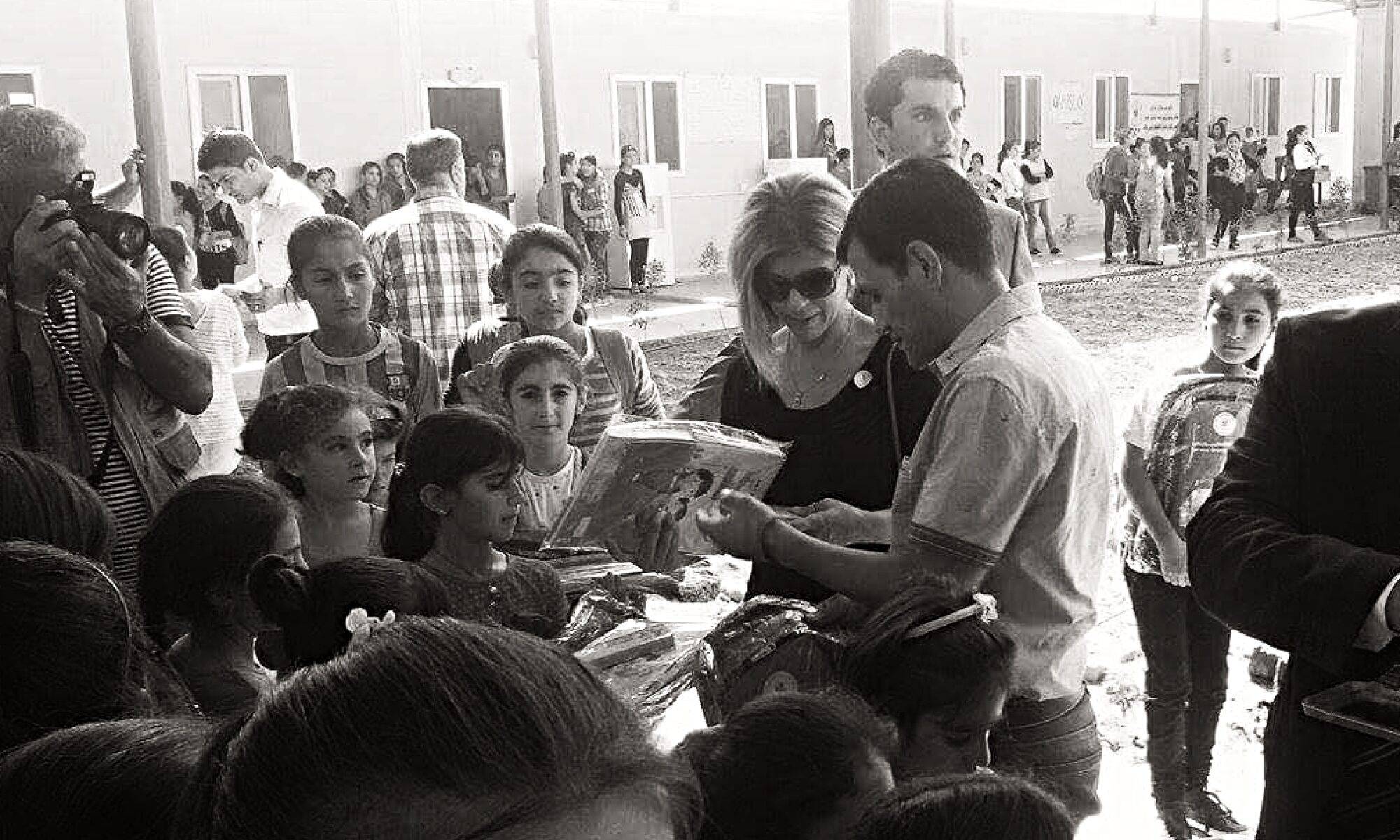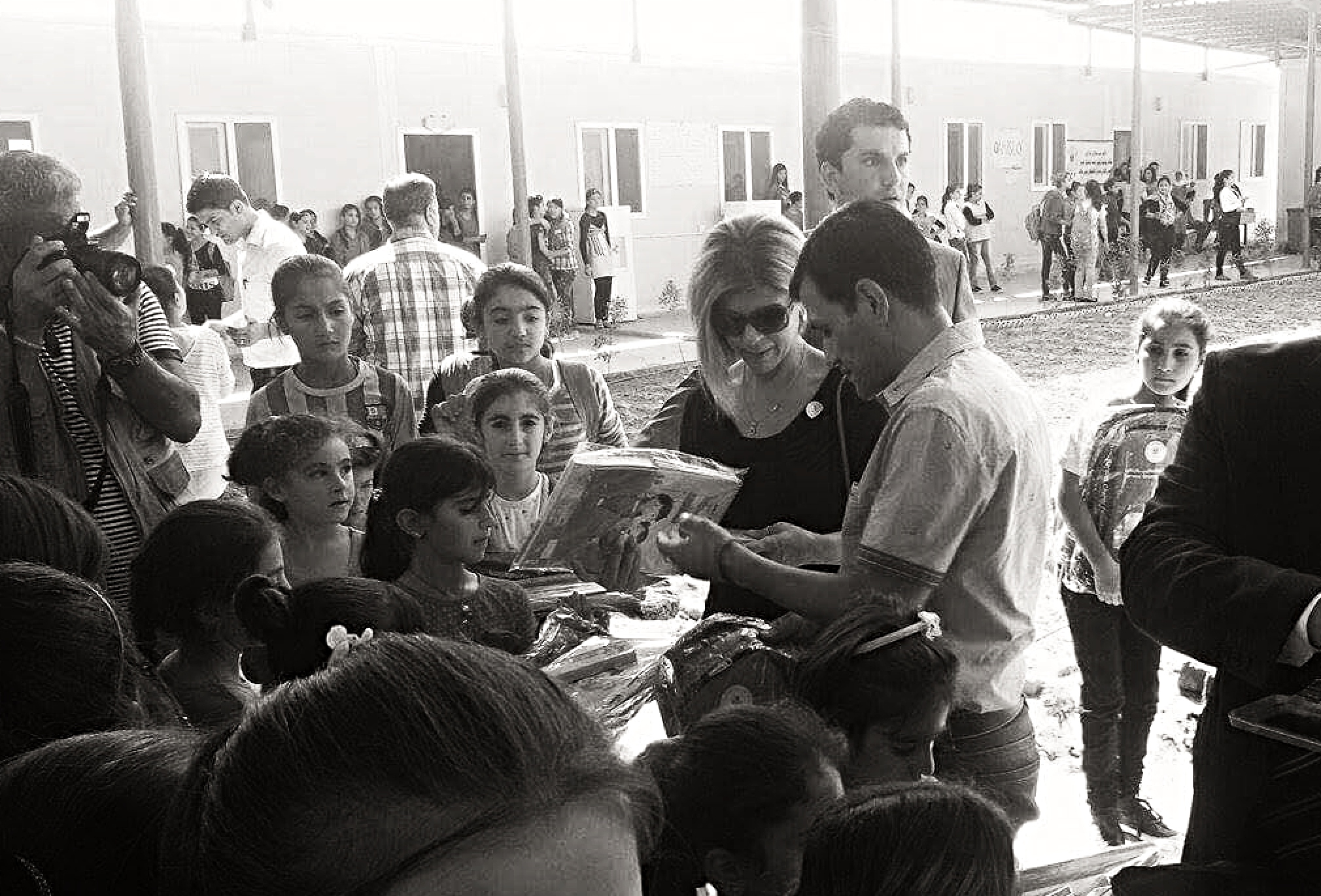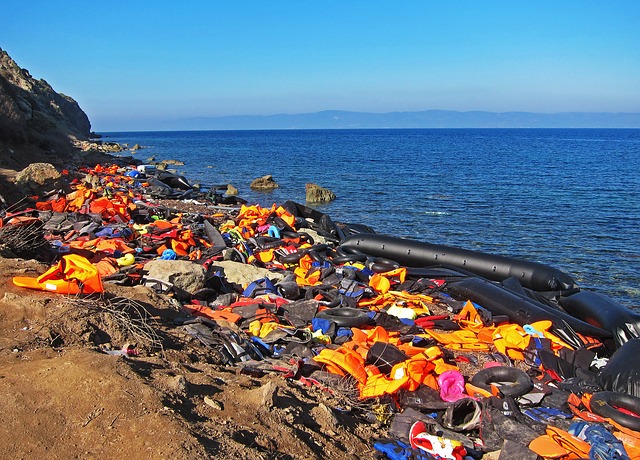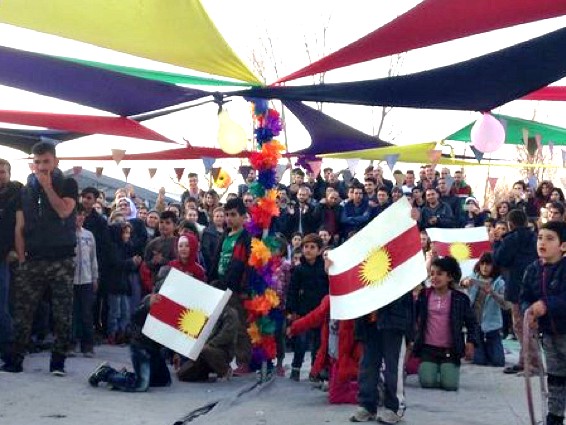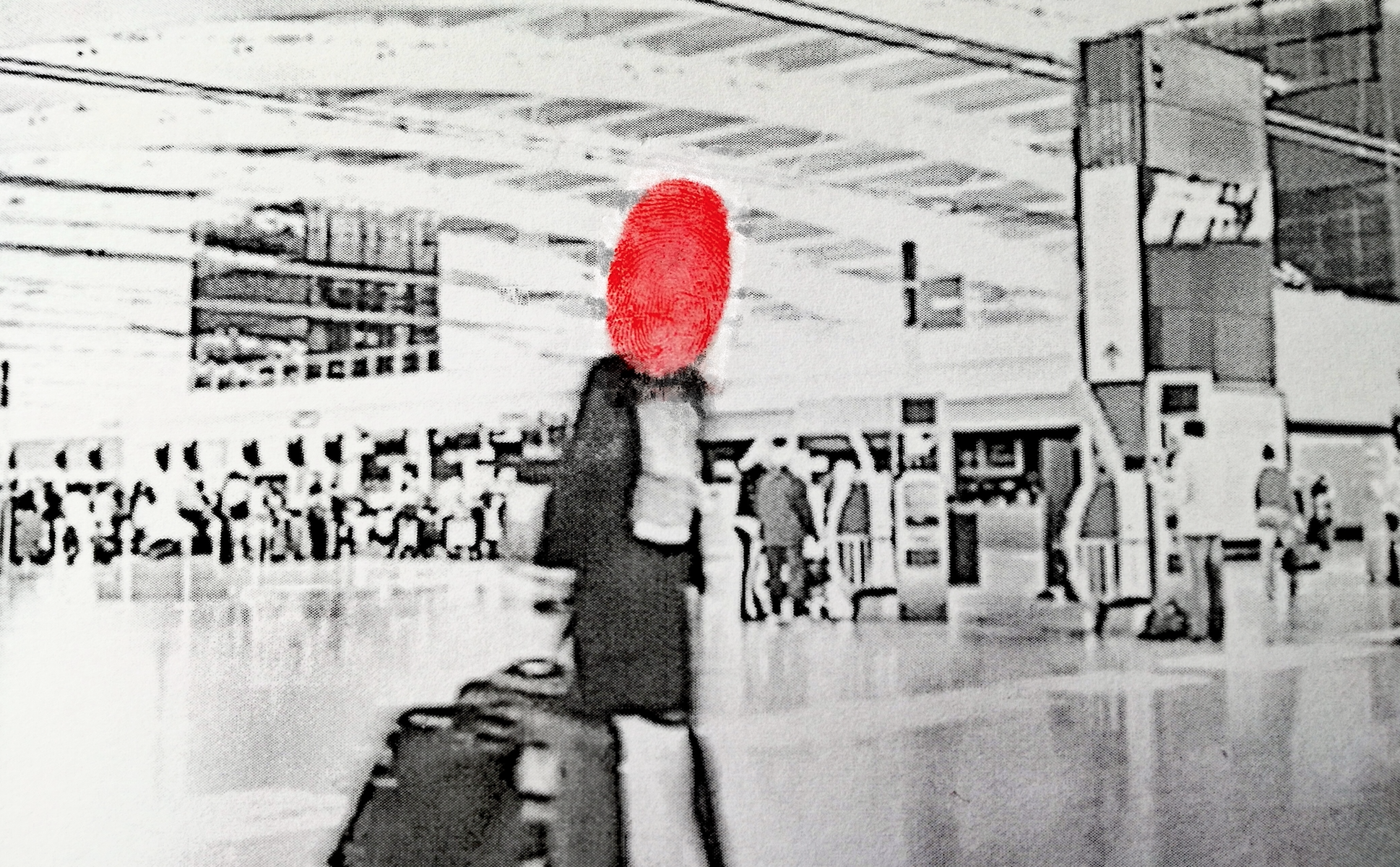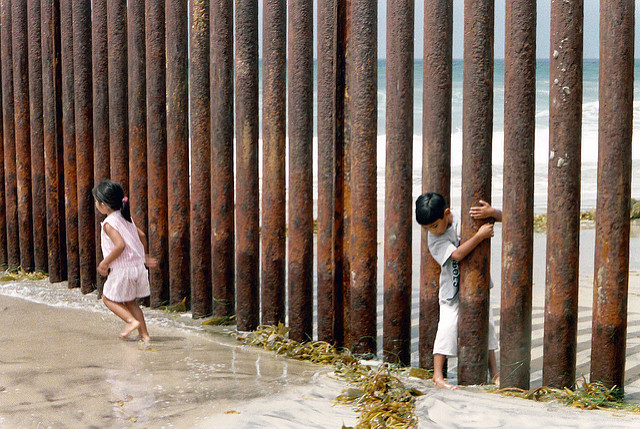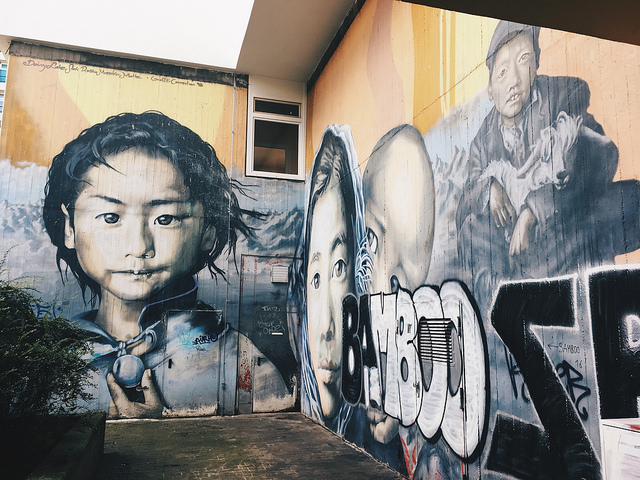Linda Tippkaemper, Marie Skłodowska-Curie PhD Fellow, Université Sorbonne Paris Cité
Unlocking borders like smartphones – Can digital identities fill a void in the global governance of mobility?
Whenever I check-in my bag at an airport and it eventually disappears, I always wonder for a moment how it is going to travel through those dark tunnels below the counter, how it will be x-rayed somewhere, barcoded and scanned. How it will travel left and right, in and out of airplanes, only to be spit back out again at the baggage carousel, sometimes at the other end of the world.
The handling of baggage, even across different airlines and borders, works thanks to the International Air Travel Association (IATA). Since 1945, the organization serves its 290 member airlines as a coordinating mechanism for security and logistical issues. Airline staff worldwide can consult IATA’s “Baggage Tracking Implementation Guide” and participate in standardized seminars. In a way, the organization ensures the successful global governance of bags.
Processing baggage owners in a comparably efficient and coordinated manner, however, is a much greater challenge. With an expected 100% increase of air travel within the next 15 years, it is essential for airlines to also “simplify and enhance the passenger process” (IATA 2018). Yet, airlines cannot just put barcode tags on their customers. They depend on state-issued travel documents to identify their passengers.
Passports vs. barcodes
Modern states invented international passports only after the First World War to enforce their “monopoly over the legitimate means of movement” (Torpey 2000). At that time, passports were only paper sheets. Nowadays, airlines can retrieve passenger data from passport booklets and match it automatically with the data stored in their booking information system. In this regard, airlines profit from states’ efforts to standardize travel documents, which are led by a specialized UN agency, the International Civil Aviation Organization (ICAO). While IATA works for its member airlines, ICAO assists 192 member states as a global governance mechanism for civil aviation standards. Under this mandate, the organization has developed a detailed guide on the state-of-the-art Machine Readable Travel Documents (MRTD).
Alphanumerical data in MRTDs can be digitally read out by states and airlines alike. However, states profit from a modern security feature that is still mostly withheld from airlines: biometrics. Airlines could use fingerprints and facial recognition just like an organic barcode tag for their passengers and thus increase efficiency in passenger handling significantly.
One digital identity – “One iD”
To foster this, IATA presented its initiative One iD in early 2018. It entails the development of a digital identity platform for travelers which can be fed with passengers’ alphanumeric and biometric passport data. IATA claims that the system could increase airport security and bring advantages for travelers, who would not have to repeatedly juggle with numerous paper documents like passports, visas and boarding passes, but could instead use their fingerprint and face as an ‘open sesame’ at each airport checkpoint (IATA 2018).
In cases where the traveler so requires, One iD could also entail digital visas, verified by governments. Currently, airlines must check visas manually and can be fined by states under the so-called carrier sanctions, if they transport an unproperly documented passenger across the border. However, with almost 200 states and territories imposing different entry regulations towards each other’s citizens, the global visa regime resembles a giant maze of opaque regulations. As a service to its member airlines, IATA already stores these complex rules in its “TIMatic database”. The automated matching of digital visas from One iD against this database could replace manual checks and reduce the amount of time and cost dedicated to the training of airline staff.
Challenging states: The “Known Traveler Digital Identity” (KTDI)
IATA however, is not the only private organization that struggles with and therefore actively challenges the current status-quo of state-governed mechanisms to manage people’s identities across borders. Last year, the World Economic Forum (WEF) presented the “Known Traveler Digital Identity” (KTDI), which also comprises the storage of relevant individual data in one “digital envelope”, just like One iD.
When it comes to the issue of visas, the KTDI concept goes even one step further. While IATA sees the acquisition of digital entry permits as a pre-requisite for the use of One iD, the WEF rightly identifies “visa application and screening” as an important “key pain point” in a traveler’s journey. The digital platform is therefore not only designed to speed up airport procedures, but it is meant to serve as a potential decision-making tool for certain countries’ pre-vetting procedures.
The global visa regime, which has only grown within the last couple of decades alongside passports, limits hassle-free movement not only for “weak passport”[i] holders, but also for citizens traveling between economically dependent states and regions like China and the EU. To put it simply, visa requirements concern many employees and potential customers of the businesses that the WEF represents. These businesses often have their own visa desks dedicated to help staff with their applications, or they even outsource this task to special visa agencies, where “international mobility managers” guide the way through the jungle of fragmented national rules.
Filling a void?
Thus far, no public global government mechanism has even dared to steer towards a standardization of these rules and requirements, because border security is considered as an issue of national sovereignty. On the one hand, ICAO’s contribution in that field was to make visas machine-readable like passports, but the organization never overstepped its mandate to events happening outside the airport. IATA, on the other hand, as a non-public organization lobbying for airlines, never had the interest, nor the mandate to influence the policies that it only stores as a reference. Then again, the International Organization for Migration (IOM) became a UN institution only in 2016, while previously serving rather as a service provider for immigration countries and not as a global governance mechanism.
With the KTDI, the WEF aims to counter the fragmentation of national procedures. As the WEF’s concept report recognizes, “beyond the immediate efficiency gains of digitization […], emerging technologies can be used to unlock changes in policy design and the mechanisms government agencies use to ensure the secure movement of people across borders” (WEF 2018).
According to the KTDI concept, the digital identity can be complemented with attestations from “trusted entities” like employers, universities or banks, thereby building a digital “known traveler” status. The “authenticated identity claims” shall then serve as the individual’s “backbone of trust and the basis of reputation”. Instead of preparing a new visa application file for each trip according to consulates’ often confusing requirements, individuals could provide them with a uniform digital file which can be updated and re-used for each trip.
In essence, the WEF wants to detach individuals from the old, national way of constructing and screening identities by introducing a global blueprint for this purpose. This may also be considered as an attempt to bridge the gap that has developed as companies are becoming increasingly international, while their employees or customers stay confined to their nation state.
Turning the paper wall of visas into a digital one?
However, even a harmonized digital tool cannot change the fact that travelers will remain subject to states’ scrutiny. In this context, the concept possibly underestimates the current complexity of documenting and screening people’s legal, social and professional identities across borders. Today’s visa requirements represent the states’ attempts to gap the borders that exist not only between countries, but also between data. Consulates rely on a multitude of actors who must testify to the individual’s identity and intention and for whom they shall offer their endorsement. And even so, the quality and reliability of information gained during these procedures is often questioned.
The reality is that no matter what blueprint countries would be given for their vetting procedure, suspicions towards certain groups of travelers will remain and the authenticity of the uploaded documentation may be questioned just as the paper documents are questioned today. Should all the countless actors involved in compiling paperwork for digital visa procedures get an official account to digitally authenticate it? Without an elaborate solution for this, the KTDI might inevitably run into the same problems and complexity characterizing the present visa procedures. That the concept is currently being tested by the Canadian and Dutch governments, not in a visa-restricted context, is hopefully not a sign of surrender to this challenge.
After all, the KTDI could be a stepping stone for the more “integrated, secure and coordinated manner” of managing extra-territorial borders, which is one of the objectives of the UN’s Global Compact for Safe, Orderly and Regular Migration. A solution that the public global governance mechanisms, which seem to focus mainly on what happens at the airport, have yet to come up with.
__________
WEF (World Economic Forum): The Known Traveler, Unlocking the potential of digital identity for secure and seamless travel. [Online] 2018. http://www3.weforum.org/docs/WEF_The_Known_Traveler_Digital_Identity_Concept.pdf
IATA (International Air Transport Association): One iD Concept Paper Version 1. [Online] 2018. https://www.iata.org/whatwedo/passenger/Documents/OneID-concept-paper.pdf
Torpey, John (2000). The invention of the passport. Surveillance, citizenship and the state. Cambridge University Press.
Linda Tippkaemper is an INSPRIE doctoral fellow at University Paris 13, Paris Sorbonne Cité and receiving funding from the European Union’s Horizon 2020 research and innovation programme under the Marie Skłodowska-Curie grant agreement No 665850.
http://www.cofund-inspire.eu/fellow/linda-tippkaemper/
[i] For a global ranking of weak and powerful passports see the Henley Passport Index, a yearly publication on countries’ “visa-free scores,” which usually grabs media headlines: https://www.henleypassportindex.com/assets/2019/q2/Full%20Q2%20Ranking.pdf (accessed on March 28th 2019).




